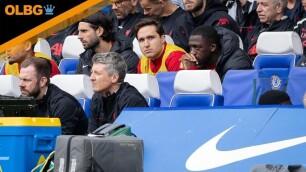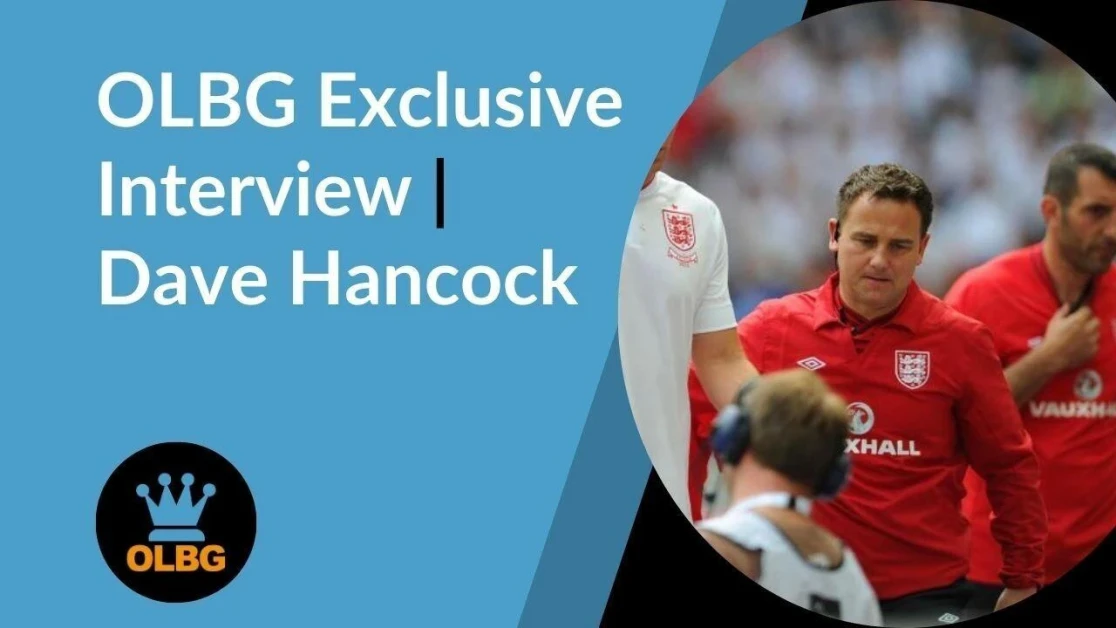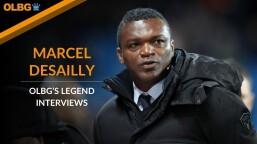
I've spent over 20 years inside the betting industry. I'll guide you to avoid the hype, ignore the noise, and steer clear of the common pitfalls that catch out everyday punters.
- How to sort out Reece James’ injury woes once and for all
- Top clubs are losing £30m a year due to injuries
- Clubs flying to Australia and Japan are putting player welfare at risk
- Medical teams have to protect players from the pressure from managers to play
- ‘Physiologically impossible’ to rest players returning for Euro 2024 in time for the new season
- Why clubs with new managers this summer are at greater risk of overloading their players
- Elite managers can still learn from Jose Mourinho even if critics say the game has past him by
- What Mourinho did to enjoy a good start at Chelsea that managers this summer can still learn from
Reece James can be rescued from injuries that 'shouldn't be happening', top Premier League clubs losing £30m a year from injury crises, and what Jose Mourinho can still teach managers about keeping their players fit
Reece James can be saved from the injuries that “shouldn’t be happening”
“Reece James needs an individual plan and an individual approach.
“Everything needs to be put in place around what a player like that is capable of doing, how that player moves, and what deficiencies that player has in movement.
“So, looking at his biomechanics, strength, weaknesses, past medical history, and the fact that he's had X, Y, and Z injuries, what are we doing to ensure that that doesn't happen again?
“What factors do we feel have caused that by looking at historical data? All of that should be put under the hood and looked at daily when you're looking at all the information you're collecting and working with someone like Reece.
“You have to because even though this is a team sport, individuals are playing within the team. They're different ages and somatotypes, meaning the way that they're physically made.
“For instance, one player might be hypermobile, another might be stiff, and one might lack control around his pelvis and lumbar spine, which is causing problems to his nerves, which causes his hamstring, quads, or calves to tear.
📝 Understanding Player Biomechanics: The Key to Reece James' Comeback
“It's about identifying the risks and what we are doing to prevent those risks. Then, when we get that player back fully fit, what are we monitoring, and what are we doing before training, after training, in the evening, at his house, in terms of how he's recovering? It’s 24/7 monitoring.
“Every angle with a player like that who's been out for so long must be continuously monitored. We must continuously use the data to adjust what we're doing with that player. Is it having an effect? Is it not having an effect? Why are we doing it if it's not having an impact?
“So if you have enough information and insight about everything to do with that player, including psychology, you should be able to get that player back to the top level he was at before without breaking down.
“But it's a team effort. It's not just the doctor or the physio. It's a whole collaborative team effort in which everyone's on the same page working with that athlete, including his own staff outside of Chelsea. We're all doing the same thing, knowing what each other's doing and communicating that.
“And if you have a good system like that and the communication of information and data is around that player, you have a real good chance of getting him back to where he was and making sure that he doesn't break down and that he's happy.”
Top clubs are losing £30m a year on injuries alone
“In terms of cost spent on trying to keep individual players fit, it depends on the board and the mentality of the board; it comes from the owners.
“We put out some stats with Apollo on LinkedIn that showed specific teams like Chelsea, have spent over £30 million on wasted salaries last season.
“So that's £30 million they've had nothing back from. That's a lot.
“So if you spend 100 grand, 200 grand, a million, two million, it's nothing in the remit of what goes on. And to be honest, you could have a therapist per player for that sort of money.
“So, there shouldn't be any excuses for injuries, and hamstrings in particular. Nowadays, that shouldn't happen.
💡 Investing in Prevention: How Clubs Can Save Millions
“If it is happening, then there's either a problem with information communication, a problem with strategy, or a problem with moving from one department to another to allow the player to return.
“The job of a performance director, like I used to do, is to go in and identify those problems, sort them out quickly, and make sure that that doesn't happen when that player comes out from an injury.
“Most of the time now, these teams should have a department purely down to prevention.
“Forget about injured players; let's talk about fit players. So, we have a department, a whole department, designated to what we are doing to maintain these players.
“You see some teams that do that very well and you see other teams that don't do that very well and the statistics don't lie. The days of saying ‘we were just unlucky this season’ you don't have any time anymore in sport.
“The scrutiny and the information and the amount of data and the amount of people that you have now working. I started in football in 1993. We had one fitness coach and two physios. I left Chelsea in 2008. I think we had 16 staff in total. I should think now they're in the 20s.”

Benchwarmers: - Which Footballers Have Earned the Most for Sitting on the Bench?
Premier League clubs are putting money over player welfare – trips to Australia and Japan are a step too far
“Premier League clubs are taking risks with their expansive pre-season tours, and unfortunately, it’s all about the money.
“For all the talk of player welfare, it’s a tug-of-war, and management has to take a stern stance on it. Even just travel can impact players. Now, it's even happening at the end of the season, which is probably the worst time to do something.
“Going to Australia or Japan for a game because someone's going to pay us £5 million for the one game. Eventually, it will catch up with you. Depending on the size of your squad and how you rotate that squad, that’s what success becomes dependent on.
“It’s really important for a manager. Some teams have the luxury of rotating a squad, and others don't, depending on the size and quality of the squad. At the end of the day, there's so much pressure on the manager to win that he's always going to play his best players—or they are going to be out of a job.”

Premier League Specials: Man Utd at risk of ANOTHER injury crisis with new signing Leny Yoro out for 3 MONTHS as Spurs top the table for miles travelled in pre-season!
Premier League squads need a break – and it’s the job of medical teams to protect players from the pressure to play
“The first thing they need is a good break. Allowing players to go for a two or three week vacation is going to be really important for mind, body and soul. It's not just physical, it's mental as well.
“You're dealing with a tremendous amount of pressure, you've been pulled from pillar to post, you might have signed for a new club, or be under new management, some also had the heartbreak of the Euros.
“The pressure to get somewhere and be successful, all of that takes its toll. So the first thing you'd really do is go away for three weeks and rest. Then you have to give them a different training regime compared to the rest of the team.
“You may have players coming back three weeks later than their team-mates, some are different by a few days, all of those need to be individualised training programmes.
🛌⚽️ The Power of Rest: How Breaks and Tailored Regimes Boost Player Performance
“The monitoring of those players in games and during the week and the recovery strategies needs to be different from the rest of the individuals that haven't played.
“If you can do that and you monitor it well with data, you should have good outcomes. The problem comes when the management becomes reactive because they've lost a game.
“If it becomes ‘I need this player now’ without notice of his fitness and recovery levels, you get into this sort of tug of war between medical performance and coaching about the availability of the player.
“In some respects, it's the job of the medical people to protect that player in those scenarios, knowing that if they overload, they over strain, they over exert, they'll end up maybe with a soft tissue injury or even worse.
“If they're just fatigued they could still end up with a contact injury that could send them out for the rest of the season.”
Resting players returning from the Euros in time for the new season is ‘physiologically impossible’
“The smart thing to do is to ease players who have been active in the summer into the new season, but whether a manager's prepared to do that is another conversation, whether he's prepared to rest his star players.
“The manager is going to choose his best team because he wants to win the game. That's part and parcel of what sport is about. But this is a marathon, not a sprint.
“You need to strategically look at when you play these players and when you rest these players.
“It might be, for instance, cup games now that a lot of the top teams have the ability to bring in some of the youth players and give them experience. Resting a player who's played deep into the Euros and removing them from the very beginnings of the season, I think is quite smart, or reducing their minutes that they play.
“The bottom line is that most of these athletes, right, they're not going to detrain in two or three weeks.
🗓️ Gradual Recovery: A Smart Approach to Player Management
“So you've got a player that's played deep into the Euros and they go away for two or three, they're not gonna detrain in three weeks, impossible, physiologically impossible.
“So a lot of the time it's about gradually topping them up and then bringing them back. These guys are super, super fit. It's more about recovery. It's more about giving them 48 hours, 72 hours to recover from the game at the weekend.
“The problem is that the coach is thinking about the next game and the next game and therefore it’s all about prep and tactics for the next game, when the players might not have even recovered yet.
“They might not be recovered enough to actually go out and physically train hard on the Wednesday. Normally you'd play on Saturday. you'd have a light recovery session on the Sunday, maybe you'd have Monday off and then you'll train Tuesday, Wednesday, Thursday, and Friday before Saturday.
“What should happen is that those players who've been hugely experienced and gone deep into European and international football, they should be doing a different training regime to the rest of the squad.
“That's difficult because you're then juggling individuals where you're trying to bring them into a team formation, a team environment.”
Managerial changes this summer will only put more load on players on top of fixture pile up
“The formations that the coach plays, the intensity the coach plays with, those things all have an impact.
“If it’s a high pressing game and the player isn't conditioned for that, then it’s going to lead to soft tissue injuries.
“The way you condition them to develop and have that in their armoury is hugely important, it’s about putting it into a model and sticking to the plan.
“Most of the time you have great models and great plans in terms of recovery strategies, but then all of a sudden you lose a game and then players all get called in for an extra session.
“It's the level-headed managers for me who get it right, those who they're not too reactive, they stick to the game plan.
🏟️ Consistency is King: How Smart Management Prevents Injuries
“The key stat to look at is your percentage of availability for matches and your percentage of availability for training. They're the two things that matter to a coach.
“Is the guy available for me to train? And what's most important, is he available for me to select him to play on Saturday or Sunday or during the week?
“If you base your key performance indicators using your data, then everything should relate to that.
“Is our availability improving or is it getting worse? In other words, we had three hamstrings last season, we've only had one this season, so what we put into place is actually having a benefit.
“If it's not, you've got five, then clearly something needs to be tweaked or you're doing something wrong. The days of saying we were just unlucky with injuries are gone.”
Elite managers can still learn a lot from Jose Mourinho and his methods in pre-season
“With Rui Faria the first time around at Chelsea, Jose Mourinho was way ahead of his time.
“We won the Premier League because we had one of the best injury records, but that wasn’t down to us. It was down to the way he methodically designed his training. In effect what he was doing with his training was he was periodising it depending on when they had a game.
“So therefore he would know when the players needed topping up and when the players needed to have recovery.
“His whole thing was really intense, but it's very short. You're in, you're out and gone in an hour. It was also very varied.
🧩 The Mourinho Formula: Syncing Intensity With Recovery for Winning Results
“There was a lot of psychology that he used, which I found personally to be brilliant. Out of all the managers that I've seen, he in that time was way ahead of the curve.
“I think when you’ve got that and you're synced with your sports science, strength and conditioning, medical departments on your philosophy and what you're doing, then you have a pretty good chance.
“I think the problem comes when you've got a management and coaching staff that just does what they want to do and there's no input from anyone else and there's no cohesion about what you're doing as a team, that's when you can start having problems.
“Understanding the intensity of how a coach works and his style of play, that's really important for the medical and the performance team because we might need to adapt how we train the athlete when they're injured or when they're on their return to accommodate what the actual coach wants out of the athlete.
“If he raises the bar to more intensity, then we have to raise the bar to more intensity to adapt to his style.”
Mourinho’s fast start to life in the Premier League is a lesson to incoming managers this summer on how to make their pre-season work for them
“Convincing players of your methods, that's the psychology of the coach. If the coach brings respect, then the player's not really going to question because the guy's got results everywhere he's gone.
“Whether you love him or you hate him, Jose Mourinho has won everywhere he's been. There's not many managers in the world that can actually say that.
“They all have different styles, but having that respect coming into a club and stamping your design about how you work and how you train and sticking to it is obviously key to any football club or any sports team success.
“That's the bit where, you know, clearly the first time around at Chelsea, Jose got that right.”



